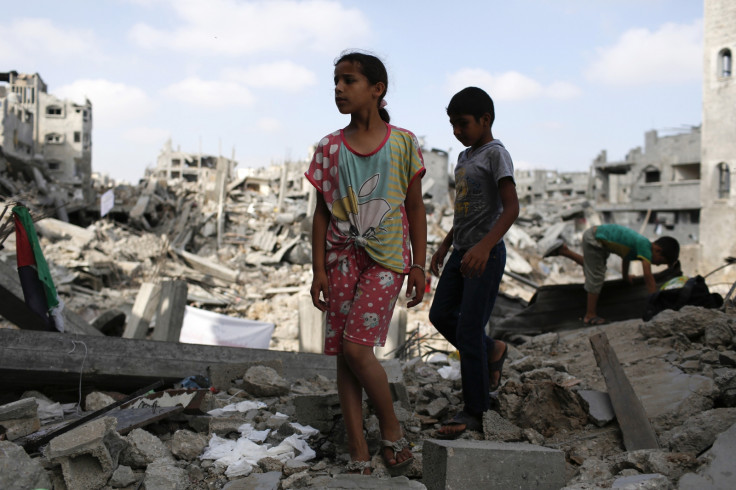Gaza Strip Rebuilding to Cost Billions of Dollars

Reconstruction of Gaza's economy will cost billions of dollars, as Israel's month-long offensive in the Palestinian territory has shattered its infrastructure.
Gaza's brittle economy, strangled by years of an economic blockade, is suffering from inflation and industrial ruin.
Prices for food staples such as meat, eggs and vegetables have risen since Israel launched aerial and ground offensives in the Palestinian territory.
The price of eggs in Gaza City has doubled from 10 shekels (£1.70, €2.15) to 20 since the Israeli military campaign commenced on July 8.
Fearing Israeli air strikes or Hamas rockets falling short of their targets, farmers have not tended their crops in the areas close to the Israel-Gaza border.
"Prices have gone up because things like meat and eggs are produced on the border area. We don't go to the border area anymore, so the people only went during the ceasefire," Khaled Aghrad, a Palestinian, told AFP at a market in Gaza City.
Industry Shattered
Gaza's industrial sector has suffered badly from the Israeli assault.
Palestinian business leaders have said that 175 of Gaza's biggest industrial plants had been devastated since the offensive was launched.
These factories employed around 5,000 people, in a territory where 47% of people – approximately 900,000 – are unemployed.
The Israeli military has denied deliberately targeting factories, but Gaza officials have accused the Israeli Defence Force (IDF) of attempting to destroy a key foundation of Palestinian society.
The offensive has caused "huge and long-term indirect losses" to the Gazan economy, the head of Gaza's chamber of commerce and industry told AFP.
In addition, "the direct losses when (Israel) destroyed the economic and industrial establishments is around $3bn (£1.8bn, €2.2bn)," Mahir al-Tabbaa said.
Blockade
Israel first imposed an economic blockade on Gaza in 2006 after a militant seized an Israeli soldier using a cross-border tunnel.
The blockade was tightened the following year, when the Islamist group Hamas ousted Fatah from the territory, seizing full control.
Importing cement was banned, along with steel and gravel, in an attempt to halt the construction of tunnels, bunkers and other fortifications.
However, cement is now in high demand to help rebuild homes and workplaces devastated by Israeli aerial and ground attacks.
The United Nations' resident and humanitarian coordinator has said a failure to lift the economic blockade would plant the seeds of further conflict.
If the blockade was not lifted, "not only will we see very little in the way of reconstruction, but I am afraid that the conditions are in place for us to have another round of violence like we're seeing now," he told AFP.
The month-long offensive is estimated to have cost Gaza $6bn already, while hopes of a permanent ceasefire remain low.
© Copyright IBTimes 2024. All rights reserved.






